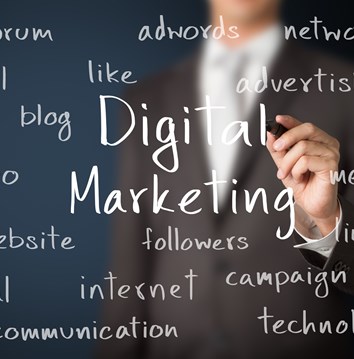
Why you need to be social
People are no longer smarter than their phones. It means all businesses need to be social to thrive, according to Arron Shepherd, Co-Founder of Goat Agency who recently spoke to Inflexion’s portfolio.
The smartphone has changed the world more than any other digital invention in the last 30 years. “The innovation is at least as big as the internet – if not bigger – because it’s in everybody’s hand,” according to Arron Shepherd, Co-Founder & Chief Storyteller at Goat Agency, Europe’s fastest-growing influencer marketing specialist which in March 2021 secured funding from Inflexion to accelerate growth.
As if the smartphone wasn’t already big enough, the last two years have forced more usage of devices as people stayed at home. This means the power of social media is even bigger. “We spend our clients’ money where people spend their time and this is changing,” Arron says, explaining that 10 years ago it was newspapers, TV and radio and so advertisers spent 75% of their money there. Nowadays they’re spending around 60% of budgets there, but consumers are only spending c30% of their time there – and this will change. “Covid is the moment that caused major advertisers to reconsider where and how they’re spending their money. It would have happened anyway, but the pandemic has accelerated the shift.”
We will spend more time ‘socialising’ from home, and lockdowns won’t necessarily be to blame, according to Arron, who paints a decidedly antisocial picture of the future of social. Arron predicts “The e-commerce side of social is the big thing coming. Our social platforms are still entertainment in the west; in China it’s several steps deeper than that, it’s Amazon, eBay and YouTube all on the screen. You’re watching a video and you click on someone’s jumper and you can buy it,” he enthuses.
Arron points to Facebook’s recent rebranding to Meta as the biggest sign the shift is upon us. “Meta is people staying in their homes and interacting digitally. Kids’ gaming is a metaverse. It’s not a real place but kids are spending real money on outfits on that game.” He says we don’t just have the ability to be in this situation, but may actually be there in two to three years’ time.
Niche marketing is more effective than any other, but traditionally it’s been very difficult. Social makes it more straightforward through influencers, who are effectively niche marketing through their expertise.
It means social is a dream for niche marketers as consumers naturally segment themselves into groups on the platforms. “Everyone’s experience on social is completely different and tailored based on who you follow, and you can change your own experience at any time by amending this. You end up with niche content for niche audiences with very little bleed. It naturally segments audiences and you don’t get this anywhere else in life,” he explains. It suits Goat to a tee: the company’s mantra is niche content to niche audiences at scale.
B2B businesses need social as much as B2C businesses do. No matter what business you have, Arron says you need to be marketing on social. “Your audience is on TikTok, even if you’re not. If you want them to buy your services, you need to engage with where they’re spending their time. This will come much quicker than people realise.” And this can have elements of D2C. “At the end of the day, a decision at a business is still made by an individual.” He explains that rather than a tech influencer reviewing phones, it can be an entrepreneur talking about how they do something to target an individual in a niche way to generate a response. “It’s the same for B2B, we’d just use a different influencer. As soon as businesses go D2C they go to social, and it optimises very quickly. What business won’t be D2C in 10 years?”
Next Far-reaching Transformation: NFT
Arron reckons non-fungible tokens (NFTs) will be as significant as the internet in just a few years’ time, and explains they’re really just a smart contract. “10 years ago you’d sing in clubs and a record company signs you. Now you do YouTube then go to a record company with 5k followers so you get signed for £5 million instead of £500k.” He anticipates the record companies will release a limited number of NFTs, each representing a percentage of the artist. “It’ll take out a lot of middlemen from a creative point of view and each time it’s sold, money goes to the artist, so they will be supportive.” He adds NFTs are the first place he’s seen brands move faster than consumers: Heineken has NFTs, but his friends with crypto haven’t yet embraced it.
He concludes, “NFTs represent fractionalised ownership and it’ll be transformational. I don’t know yet what areas will take off, but it feels to me like the late 1990s with the internet.”
Contact


